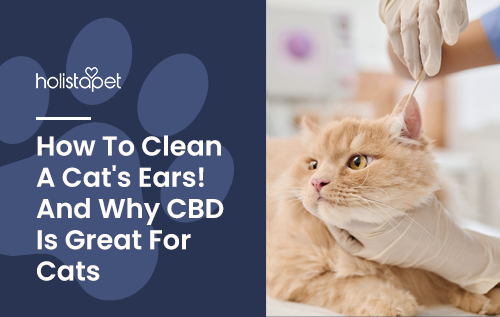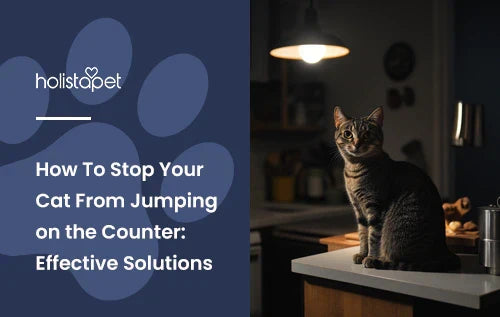Did you know that kittens have 26 baby teeth, just like us when we were little? If a cat tooth fell out, it might be no big deal, or it could be a sign something's wrong.
The trick is knowing whether your feline friend is just growing up or needs a trip to the vet. From teething kittens to tooth troubles in older cats, there's a lot to chew on (pun intended).
Stick around to find out what's normal, what's not, and how to keep those kitty chompers in great shape!
Is It Normal for a Cat's Tooth to Fall Out?

If a cat tooth fell out and your cat is full-grown, it's usually a red flag. Adult cats aren't supposed to lose their teeth unless something is wrong—think dental disease, tooth resorption, or even a tooth fracture from chewing on something too hard. It’s often a sign that your cat’s dental health needs some help.
Now, if we're talking about a kitten, that’s a whole different story. Kittens lose their baby teeth just like kids do. It’s a normal part of growing up and trading those sharp little baby teeth for strong, permanent teeth.
When Do Cats Lose Baby Teeth?
Kittens lose their baby teeth between 3 to 6 months of age. These tiny deciduous teeth start loosening up and falling out to make space for adult teeth. You might not even notice them missing. Many kittens just swallow them, but sometimes you’ll spot one on the floor or stuck to a toy.
During this time, a kitten is teething, which can make them chew everything in sight. Giving chew toys helps soothe irritated gums and keeps them from nibbling on your fingers. By 6 months old, most kittens will have all their adult teeth, ready to take on their next meal with confidence.
When Do Cats Get Adult Teeth?
Kittens lose their baby teeth pretty fast, then their grown-up chompers take over! Around 3 to 6 months old, those baby teeth fall out, and shiny adult cat teeth start to show. This isn't just a cute milestone—it's a key part of your kitten's teething journey.
Next, let's look at exactly when those new teeth pop in and what cat owners can expect during this wild (and toothy) ride!
The Timeline for Adult Teeth to Appear
As kittens grow, their kitten teeth begin to fall out to make room for stronger adult cat teeth. This change happens over a few months and is a natural part of the cat's teething process. You might not notice every tooth fall out, but the transition follows a pretty typical pattern.
- 3 to 4 months: The small front teeth (incisors) begin to loosen and fall out.
- 4 to 5 months: The longer canine teeth and premolars start making their appearance.
- 5 to 6 months: Molars begin to come in at the back of the mouth.
- 6 to 7 months: By now, most kittens have grown all their adult teeth—30 in total.
By the end of this process, your kitten’s baby teeth are fully replaced with 30 strong permanent adult teeth. It’s a full-mouth transformation that sets them up for years of happy chewing.
Why Did My Cat's Adult Tooth Fall Out?

If your adult cat loses a tooth, that's usually a sign of something deeper. Unlike kittens losing baby teeth, adult cat teeth aren't supposed to fall out. Tooth loss in adult cats can point to a dental disease, tooth resorption, or even a tooth fracture. Don't shrug it off!
Common Causes for Adult Cat Tooth Loss
There's always a reason behind a cat's tooth falling out in adulthood. Here are the most common causes:
- Tooth Resorption. This condition breaks down the structure of a tooth from the inside. It's common in adult cats and can cause serious tooth loss.
- Periodontal Disease. When plaque builds up and creeps under the gum line, it can lead to red gums, loose teeth, and discomfort.
- Tooth Fracture. A tooth can crack or break if your cat bites something hard or suffers an injury.
- Old Age. As cats age, their dental health may decline, making them more likely to have missing teeth.
- Poor Diet. Not feeding the right cat food can lead to weak teeth and dental issues over time.
Impact of Dental Health and Gum Disease
Bad dental health can mess with more than just your cat's teeth. Plaque leads to periodontal disease, which can cause lost teeth, irritated gums, and even infection. When the gum line gets weak, everything else follows. Keeping the mouth clean keeps everything else running smoothly.
When to Seek Veterinary Help for a Lost Tooth
If your adult cat loses a tooth, it’s time to call the vet. Unlike kittens, adult cats shouldn’t be dropping teeth so when they do, it’s usually a sign that something deeper is going on. It might be tooth resorption, dental disease, or even an infection hidden below the gum line.
A veterinarian can take a closer look at your cat’s mouth, possibly run X-rays, and figure out what’s causing the tooth loss. It’s best to take action before your cat starts showing signs something’s wrong. Catching the issue early can help prevent bigger dental issues down the line and keep your furry friend happy and healthy.
Signs of Dental Problems in Cats
Sometimes, it's not easy to tell when a cat's teeth are in trouble. But if you know what to watch for, you can catch dental issues early. Things like bad breath, sore gums, or changes in how your cat eats could point to a bigger problem. Here's what to look for next.
Bad Breath and Difficulty Eating
Bad breath might seem harmless, but it's often a warning sign of dental disease. If your cat drops food, avoids hard food, or only wants wet food, something may be wrong. Tooth loss, gum line swelling, or a tooth fracture could be making meals uncomfortable. A veterinarian can check the mouth for problems and help ease any discomfort.
Red or Swollen Gums
If your cat has red gums, irritated gums, or visible puffiness along the gum line, that's a red flag. These signs often show up with periodontal disease, especially in an adult cat with dental health issues. The gums might bleed, look sore, or seem tender. Regular dental care and checkups can help catch and treat these early.
How to Care for Your Cat's Teeth and Gums
Keeping your cat's teeth clean doesn't have to be a chore. With a little help from brushing, chewing toys, and regular checkups, your feline's mouth can stay in great shape. These next sections will help you build a solid routine for better dental health and a happier kitty.
Related Post: How To Brush Cats' Teeth: Easy Steps for a Healthy Smile
Brushing Your Cat's Teeth and Using Dental Products

Brushing a cat's teeth might sound tricky, but it's easier than you think. Use a soft brush and pet-safe toothpaste to gently clean along the gum line. Start slow and make it a positive experience.
Good dental care helps prevent dental disease and keeps adult cat teeth healthy. Pair brushing with vet-approved dental gels or wipes for even better results. Keep your eye out for persistent deciduous teeth that don't fall out when new teeth come in.
If you have a nervous or fearful cat or one that dislikes teeth brushing, calming aids like CBD, chamomile, or valerian root may help promote calmness and relaxation during stressful times. For the best options, check out our CBD for Cats line, featuring CBD calming chews, hard treats, tincture oils, and capsules.
Providing Dental Chews and Toys for Oral Health
Dental chews and chew toys help clean a cat's teeth while keeping your feline entertained. They can reduce buildup, ease irritated gums, and even help a teething kitten feel more comfortable. Look for quality teeth-cleaning ingredients like enzymes, Calcium, Phosphorus, Seaweed, Coconut oil, Parsley, Mint, and fiber.
Importance of Regular Vet Check-Ups
Routine visits to the vet make a big difference in your cat's dental health. A quick look inside the mouth can reveal early signs of dental disease, tooth loss, or even tooth resorption. Your veterinarian may recommend cleanings or x-rays to catch problems you can't see at home.
These checkups are especially important for an adult cat showing signs like bad breath, missing teeth, or sore gums. Staying ahead of dental issues means fewer surprises and fewer vet bills.
Final Thoughts on Tooth Loss in Cats
Seeing that a cat's tooth fell out can feel a little alarming, but knowing what's normal makes all the difference. Kittens lose their baby teeth as they grow, but an adult cat with missing teeth often needs a closer look from a vet.
With good dental care, the right cat food, and regular checkups, you can help protect your cat's teeth for years to come. For extra support, HolistaPet offers wellness products like CBD cat treats and calming chews—perfect for keeping both cats and dogs feeling their best from nose to tail.







![Probiotics For Dogs [Soft Chews] - HolistaPet](http://www.holistapet.com/cdn/shop/files/Probiotic-Infographic-1_472d7a29-e30c-435a-9638-1365d8c3a9f9.jpg?v=1725384841&width=104)



























Leave a comment
All comments are moderated before being published.
This site is protected by hCaptcha and the hCaptcha Privacy Policy and Terms of Service apply.